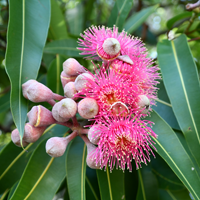5th June 2021
I wonder…
As nature journalers we can let ourselves dive deeply into wonders and mysteries in the natural world. This process begins with questioning what we experience. Find the questions behind the questions until they carry you down the rabbit-hole of discovery!
There will be two live workshops today to explore natural mysteries in our nature journals. Please click the links below to learn more about each workshop.
Elizabeth Mills -
Sealife sketchbook workshop
Marley Peifer -
Unlock The Power of Your Curiosity in Your Nature Journal
We will also have a pre-recorded workshop which will appear here on the morning of the 5th June.
5th June 2021
Amy Kirkbright -
When chronic illness, disability and other barriers are a block: For the fighters and supporters
Nature journaling prompts and ideas
Ask questions - Nature journaling is the perfect way to explore natural mysteries. As soon as you begin closely observing nature, questions will start to come up for you! Write your questions down on the pages of your journal. Let the questions open the way for more questions. Don’t worry if you don’t have the answers, the process itself opens your mind in new ways and takes you further along the path to uncovering the wonders of nature.
Write it down - When you take what’s in your head and put it on paper, you are capturing your thoughts so that you can return to them at a later date, and you also free up space in your mind for going deeper into ideas and further questions.
Create (and test) hypotheses - Practice thinking of various reasons why something might be the way it is. Create a hypothesis and then do some investigating to test whether your hypothesis is correct. Disproving your hypothesis is not a failure! This is the basis of science and brings you closer to the truth of what is going on.
Explore in books - When you have big questions about what you notice in nature, it can be fun to do a little research about your subject. Field guides are a good place to start. Identify your species in a field guide and then use this information to explore further at your local library.
Teach someone else - One of the best ways of exploring an idea or cementing something in your mind is to try to tell or teach the concept to someone else. When you are exploring and idea, see if you can learn enough about it to communicate it to another person, a friend or family member or a nature journal buddy. The act of communicating the idea will allow you to cement the concept in your mind in a new and active way.
Learn more
To learn more about the role of intentional curiosity in nature journaling, read the blog post called ‘The joy of curiosity in my nature journal’ by Fiona Gillogly. You can also listen to Fiona speaking about exploring questions in her nature journal on the Journaling With Nature Podcast Episode 11: Fiona Gillogly - Questions Behind the Questions.
Did you know that scientists around the world are harnessing the curiosity of people like you to learn more about nature? They do this through community (or citizen) science: platforms or projects that allow the public to share their nature observations in a way that scientists can use them to find patterns and test hypotheses. You can find an introduction to just a few of them here.
Wondering about the mysteries of nature can enrich our lives from childhood into our old age. In this interview, trail-blazing primatologist Jane Goodall describes how she's been asking questions since she was a tiny girl.
Non-human animals are curious too! What do they wonder about us? In this moving article both the author and the octopus seem to be asking questions about each other.
A young nature journaller who lived over 300 years ago "forever changed the course of entomology" with fascination with the life cycle of butterflies and moths!









